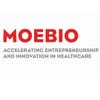‘Made in Barcelona’ surgical robot hopes to rival Da Vinci
A minimally invasive laparoscopic robot made in Barcelona will hit the market in 2019 at half the price of the Da Vinci system, the first and most widely sold in the world. An example of engineering and design in healthcare. Da Vinci went on the market 18 years ago, costs $2–2.5 million and is backed by a huge company: Intuitive Surgical. Last year alone, they saw $3.1 million in turnover: a marvel of engineering and design in healthcare that is highly profitable.
Barcelona-based firm Rob Surgical Systems, a spin-off of the Polytechnic University of Catalonia (UPC) and the Institute for Bioengineering of Catalonia (IBEC), doesn’t fear this huge competitor and says it’s robot can overcome the shortcomings of the Da Vinci system, like lack of flexibility, modularity and set-up time. In fact, the Barcelona robot, christened Bitrack Systems, takes just seconds to get instruments to the patient, compared to 30 minutes for the Da Vinci system.
Josep Amat, technical director of Rob Surgical Systems, reveals the role design and engineering play in the project.
What role do product design and patient experience play in the design of the robot?
Good design is based on five key factors: understanding the problem to be solved, having a clear idea that the solution proposed is the simplest and most efficient possible, in-depth knowledge of the underlying theory, using the best technology available and making sure the solution is accessible for future users. In our case, in developing the Bitrack surgical robot, we worked hard to make sure we hit the brief on all of these levels.
How have you dealt with the need to combine design and healthcare?
The complexity of the project meant we had to set up a multidisciplinary team, as it covers a wide range of aspects beyond robotics. We needed to pool in-depth of knowledge in computers, kinematics, mathematical algorithms, mechanics, electronics, regulatory and management issues associated with surgical instruments and equipment.
Our team is led by a PhD in industrial engineering with extensive training in robotics, electronics and mechanics, an emeritus professor at the UPC; and by a PhD in computers and professor of computer architecture and technology at the UPC. The rest of the team is made up of a PhD in computers specializing in robotics and mathematical algorithms, an engineer specializing in real-time control and communication systems, a computer engineer specializing in designing complex systems, a junior industrial engineer specializing in mechanical design, a junior electrical engineer specializing in microelectronic systems design, and a chemical engineer specializing in QA and regulatory issues.
What is different about working in the healthcare sector compared to other industrial sectors?
It’s a very rewarding job, above all if you think about the return once it reaches the healthcare system, but also quite demanding.
PS- You can read this post in Spanish in Moebio’s blog
Willing to work in design, engineering and health? Join d·HEALTH Barcelona
Biocat has just open this July the selection for students of its sixth Design Health Barcelona (d·HEALTH Barcelona) edition, a postgraduate program to develop innovators and entrepreneurs in the healthcare sector, with starting date in January, 2019. The 90% of the previous editions participants have found a job in the healthcare sector and 48% of them started their own business project.
Following the Stanford biodesign methodology, participants expeirence a full cycle of innovation. The fellows divide into multidisciplinary teams with graduates in science, design, engineering and business, and do a two-month clinical immersion in top hospitals in Barcelona to detect real unmet clinical needs on site that can be the basis for creating new products or services.
Throughout the program, participants experience a full innovation cycle, from identifying the business idea to designing and prototyping a viable solution and searching for funding. At the same time, they take on valuable knowledge in medicine, business development, design thinking and creative leadership skills from over 70 international professors from Stanford, Kaos Pilot and companies in Silicon Valley, among others.
More information about Design Health Barcelona (d·HEALTH Barcelona).
